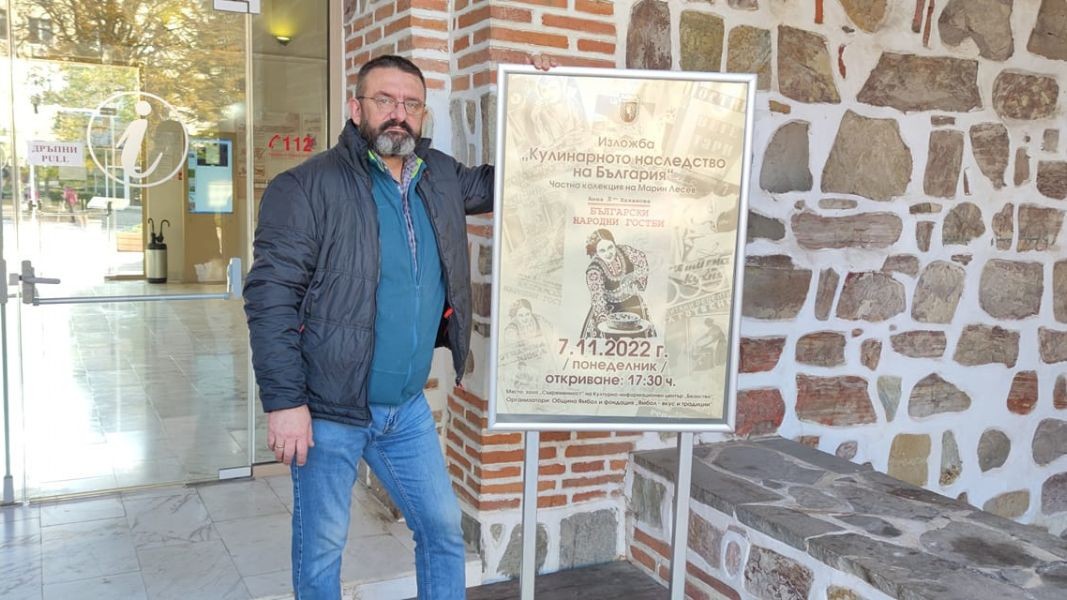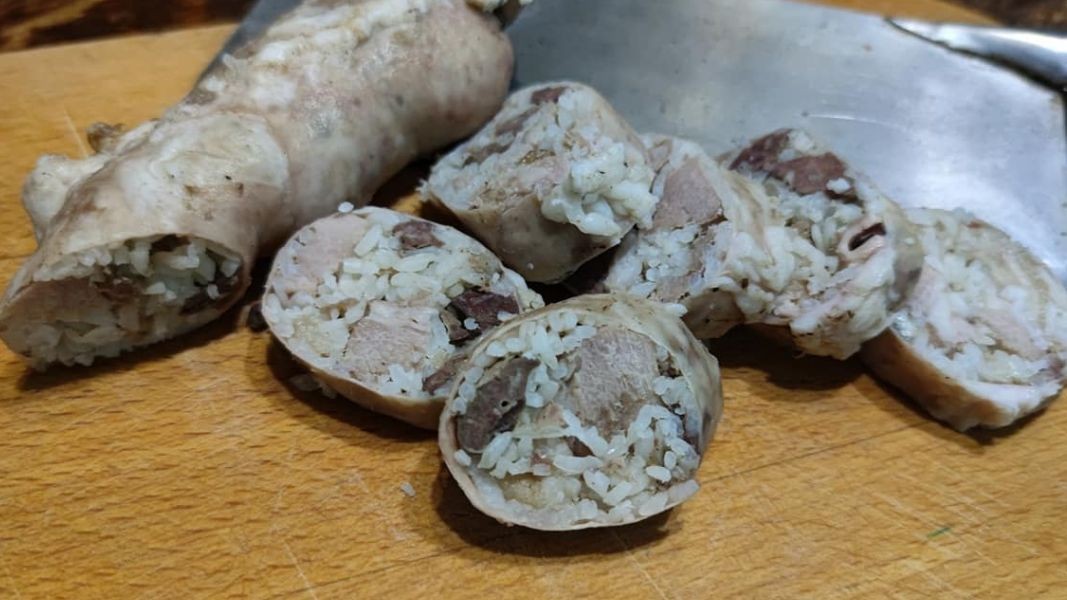The first exhibition of Bulgarian culinary books from 1870 to the present day opened in the city of Yambol. The exhibits are part of a unique collection owned by Marin Lesev. In the course of more than three decades he has collected Bulgarian culinary books and articles. Currently, his collection includes over 8,000 books, magazines and newspapers with old Bulgarian recipes. Due to the huge volume, 240 of them are on display.

The exhibition presents traditional Bulgarian culinary practices and ways for preserving and canning food from the second half of the 19th century until today. Visitors can see printed editions and manuscripts that have served as inspiration for several generations of chefs from modern Bulgarian history.
"In Bulgaria, as well as around the world, there is a trend for searching for the authentic, the forgotten taste," Deputy Minister of Agriculture Georgi Sabev, who attended the official opening of the event, said in an interview with BNR Stara Zagora.
"The goal of such an initiative is to shed light on forgotten Bulgarian products and recipes. In conversations, the collector said that nearly 100 years ago there was a similar trend as Bulgarians started looking for more information on how to store and preserve food. And this is extremely important, because these traditional Bulgarian products and the way they are prepared and stored are what make us unique. This exhibition and this literature are a very good basis for the development of culinary tourism in Bulgaria."

During the exhibition, one can taste traditional dishes from the region of Yambol, prepared by local young chefs.
"Culinary tourism is the business card of Bulgaria to the world," Georgi Sabev said and added that a framework program for the development of culinary tourism is currently being finalized. It aims to popularize traditional local and regional products. For this purpose, a digital culinary map of Bulgaria will be prepared. According to him, every region of Bulgaria has potential for the development of culinary tourism.
"In eastern Bulgaria and at the Black Sea coast, for example, we have traditional fish products and local methods for preservation. In mountainous regions, there is a more specific climate that contributes to a variety of meat products - for example, dry-cured sausages. In the plains, however, there are different products and spices. Culinary tourism is aimed at both foreign and Bulgarian tourists who are looking for the traditional food. The uniformity of today’s products has made the Bulgarian consumer look for something different, for the forgotten taste."

The interesting culinary exhibition will remain on display in Yambol until December 10. Its organizers are the Municipality of Yambol and the Taste and Traditions Foundation.
Compiled by: Veneta Nikolova /based on an interview by Zornitsa Semerdzhieva from BNR Stara Zagora/
English: Al. Markov
Photos: Facebook /Marin LesevThe international plein air event, 'Bosilegrad in Colour 2025' , will officially begin on 14 July at 18:30 local time. Organised by the GLAS Association – Bosilegrad , the event will run until 19 July, with the support of the St. Kliment Ohridski..
Summer in Veliko Tarnovo is necessarily associated with an event that has become a tradition for the University of Veliko Tarnovo, namely the Bulgarian Studies Seminar, in which the number of participants is constantly increasing and has already..
In the Eastern Rhodopes, in the place where Roman patricians used to drink wine surrounded by marble columns, these days tourists wear authentic togas and marvel at original mosaics from the 2nd and 3rd centuries. Villa Armira – the..
In the Eastern Rhodopes, in the place where Roman patricians used to drink wine surrounded by marble columns, these days tourists wear..
Summer in Veliko Tarnovo is necessarily associated with an event that has become a tradition for the University of Veliko Tarnovo, namely the Bulgarian..
The international plein air event, 'Bosilegrad in Colour 2025' , will officially begin on 14 July at 18:30 local time. Organised by the GLAS Association..

+359 2 9336 661
